Meet Tomahawk and Fedora, two players in a parable of kindness
Did I just imagine that? Here among the snorters, meat-slappers and moaning joggers were two strangers, partaking in an exchange of kind words, witnessed by no one else in the world.
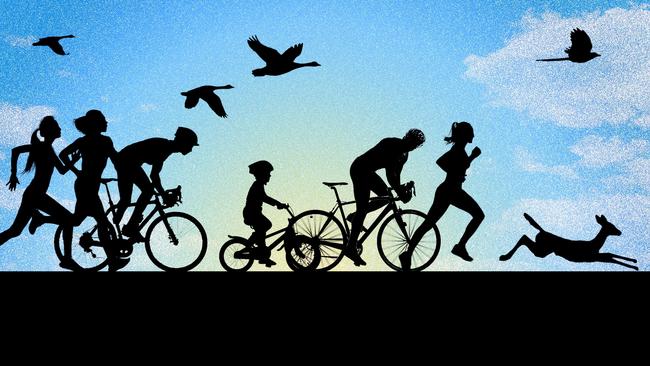
There are as many unique joggers and jogging styles as there are fingerprints. Joggers who proceed gazelle-like on the balls of their feet, others whose feet roll from the outside in. Silent joggers. Moaning joggers. Breathing-through-the-nose snorting joggers. Intermittent-squeaking joggers.
Then there are what I like to call the charcuterie joggers, or those whose feet meeting the road sounds like raw steak repeatedly slapping on a cast-iron claw-foot bathtub. Their style is wet, heavy, laboured and loud.
On this morning the jogger approaching from behind sounded like he was thrashing two giant tomahawk steaks to earth, accompanied by the piston-like hissing and fizzing of his breathing.
Tomahawk passed me in a halo of his own sweat and then, 30m down the track he stopped, planted the steaks, squatted and clasped his forehead. I could only surmise he’d started out on his daily exercise a cheery medium rare and arrived at this point totally well done.
He would only have been in his mid-30s, Tomahawk, yet here he was, overcooked and overdone, a shell of a man heaving like a pair of old-fashioned blacksmith bellows.
Then something inexplicable happened.
A man walking in the opposite direction, he not a day under 75, dressed in smart joggers, chinos, a collared shirt with a pocket filled with his spectacles case and what could have been a small notebook and pen, and wearing a medium brimmed cane Fedora, stopped in his tracks and reached his right arm outward towards the ailing Tomahawk.
For a nanosecond I was reminded of the ceiling of the Sistine Chapel in Rome, tremulous hand of God in Michaelangelo’s Creation of Adam, the forefinger reaching, reaching ... if indeed God was partial to Fedoras and tiny pocket notebooks and beige slacks, and Adam was a crumpled heap of sweaty nylon and dripping fringe hair.
“Are you okay?” asked Fedora.
“I’m fine,” croaked Tomahawk. “Thank you.”
Did I just imagine that?
Here, a quarter of the way into the 21st century, was a small, beautiful, magnificent, glorious act of human kindness. Just seven words exchanged between strangers. A gesture that went unnoticed by the world except me, Fedora and Tomahawk. The gentlest and most primal query from a man well and truly old enough to be the distressed jogger’s father.
It took all of three seconds. Then, poof, it was gone, and the two men went their separate ways.
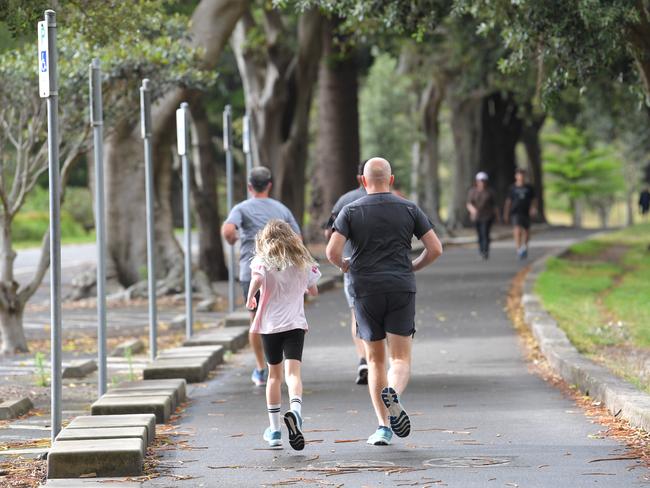
That seemingly miraculous moment got me thinking about acts of kindness. How rare they’d become. What they said or didn’t say about the community in which we live. And how fabulous Fedora’s simple, instinctive, heartfelt query might be the key to something larger. That he might have been onto something when it came to a healthy heart and soul.
So I started sniffing around the notion of kindness and its positive impact on our wellbeing and lo and behold came across a study just released out of the University of Auckland in New Zealand.
Nicki Macklin, a doctoral student in the School of Population Health at Waipapa Taumata Rau, University of Auckland, along with colleagues Dr Laura Wilkinson-Meyers and Professor Tony Dowell, recently published research that defined kindness and examined its practical impact in the health-care environment.
“The foundation of kindness is civility and choosing actions that show respect, generosity, openness and inclusion,” Macklin reportedly said. “When we get into conflict, which happens a lot in health care but also in the wider world, it’s a mindset and an approach where you are actively maintaining that other person’s respect through the ways you are choosing to respond.”
She said kindness just may be the key to better patient care. It’s a model that could apply to any human interaction. Even seeing another person in distress on a morning walk.
“Kindness has been strongly linked to patient experience and outcome measures, including safety, better engagement with health-care services and reduced readmissions to hospital,” Macklin said.
“On the flip-side, unkindness in health-care teams – rude manners, unclear or abrasive communication – has been shown in large studies to be the root cause of three out of four patient harm events in hospital settings.
“So, while kindness may sound like a lovely, soft, concept, it’s actually a very serious tool for enhancing patient safety, experiences and outcome measures.”
Marta Zaraska, author of Growing Young: How Friendship, Optimism and Kindness Can Help You Live to 100, said there were reams of examples and statistics that showed the positive impact of kindness on your health and wellbeing.
She wrote in a BBC News article: “Studies show, for instance, that volunteering correlates with a 24 per cent lower risk of early death – about the same as eating six or more servings of fruits and vegetables each day, according to some studies. What’s more, volunteers have a lower risk of high blood glucose, and a lower risk of the inflammation levels connected to heart disease. They also spend 38 per cent fewer nights in hospitals than people who shy from involvement in charities.
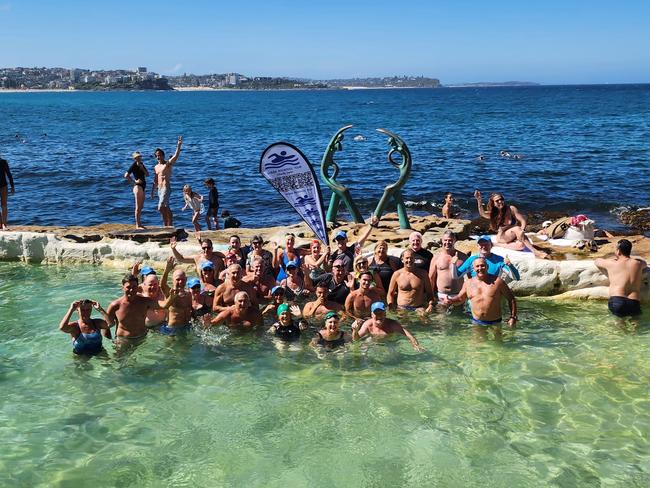
“And these health-boosting impacts of volunteering appear to be found in all corners of the world, from Spain and Egypt to Uganda and Jamaica, according to one study based on the data from the Gallup World Poll.”
The Mayo Health System in the United States, which even has its own “Kickstart Kindness” program, said kindness increased compassion, empathy and self-esteem.
“It can decrease blood pressure and cortisol, a hormone directly correlated with stress levels,” it said. “Physiologically, kindness can positively change your brain by boosting levels of serotonin and dopamine. These neurotransmitters produce feelings of satisfaction and wellbeing, and cause the pleasure and reward centres in your brain to light up. Endorphins, your body’s natural painkiller, also may be released when you show kindness.”
So here’s to Fedora, to Tomahawk, to twittering birds and abluting dogs and bony-butted cyclists all.
Be kind.
As the novelist Henry James once said: “Three things in human life are important: the first is to be kind; the second is to be kind; and the third is to be kind.”


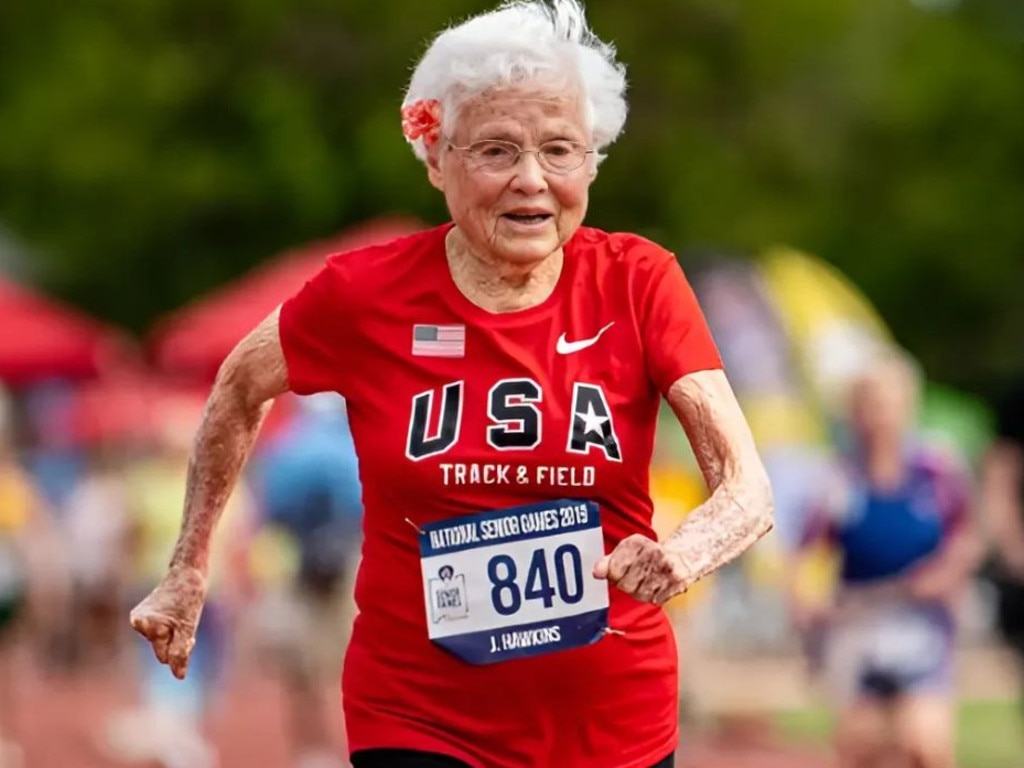

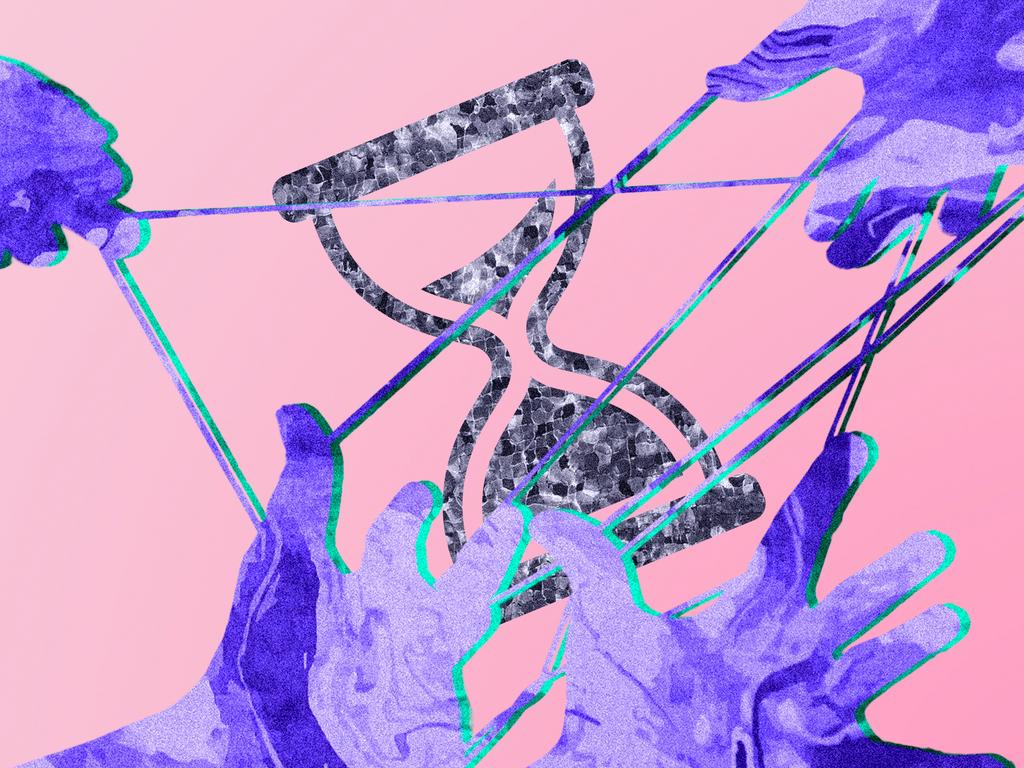
On an early morning walk recently, as birds merrily twittered and dogs happily abluted, as ancient male cyclists poked their ancient derrieres in the air as they passed, trailing an ancient odour that only ancient cyclists can ferment, and all was well with the world, I could hear a jogger approaching from behind.